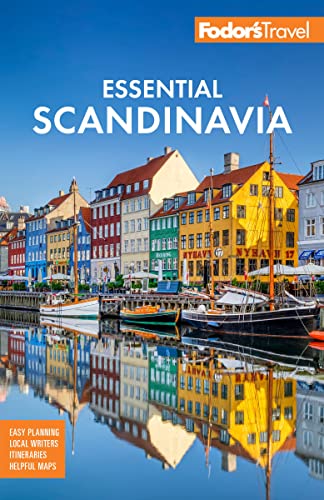Car Travel
The Øresundsbron, the 8-km (5-mile) bridge between Malmö and Copenhagen, simplifies car travel and makes train connections possible between the two countries. Ferry service is cheaper but slower—it takes 45 minutes to make the crossing, compared to 15 minutes by car.
Sweden has an excellent highway network of more than 80,000 km (50,000 miles). The fastest routes are those with numbers prefixed with an E (for "European"), some of which are the equivalent of American highways or British motorways. The size of the country compared to its population means that most roads are relatively traffic free. Rush hour in major cities can bring frustrating traffic jams.
Also be aware that there are relatively low legal blood-alcohol limits and tough penalties for driving while intoxicated in Scandinavia; Sweden, Iceland, and Finland have zero-tolerance laws. Penalties include license suspension and fines or imprisonment, and the laws are sometimes enforced by random police roadblocks in urban areas on weekends. An accident involving a driver who has an illegal blood-alcohol level usually voids all insurance agreements, making the driver responsible for all medical and car-repair bills.
Major car-rental companies ("Biluthyrning," in Swedish) such as Avis, Budget, Europcar, and Hertz have facilities in all major towns and cities as well as at airports. Various service stations also offer car rentals, including Q8, Shell and Statoil. Renting a car is a speedy business in Sweden, with none of the usual lengthy documentation and vehicle checks; show your passport, license, and credit card, pick up the key, and away you go.
Rates in Stockholm begin at SKr 560 a day and Skr 1,450 a week for a manual-drive economy car without air-conditioning and with unlimited mileage (when booked online). This does not include tax on car rentals, which is 25% in Sweden. A service charge also is usually added, which ranges from SKr 100 to SKr 165.
If you plan on extensive road touring, consider buying the Vägatlas över Sverige, a detailed road atlas published by the Mötormännens Riksförbund, available at bookstores for around SKr 300 or online for roughly SKr 185.
Drive on the right; seat beats are mandatory for everyone. You must also have at least low-beam headlights on at all times. Cars rented or bought in Sweden will have automatic headlights, which are activated every time the engine is switched on. Signs indicate five basic speed limits, ranging from 30 kph (19 mph) in school or playground areas to 110 kph (68 mph) on long stretches of E roads.
Gasoline
Due to taxes, Sweden has some of the highest gasoline rates in Europe, about SKr 15.90 per liter (about SKr 60, or $9, a gallon). Lead-free gasoline is readily available. Gas stations are self-service: pumps marked "sedel" are automatic and accept SKr 20, SKr 50 and SKr 100 bills; pumps marked "kassa" are paid for at the cashier; the "konto" pumps are for customers with credit cards.
Parking
Parking meters and, increasingly, timed ticket machines operate in larger towns, usually between 8 am and 6 pm. The fee varies from about SKr 6 to SKr 40 per hour. Parking garages in urban areas are mostly automated, often with machines that accept credit cards; "ledigt" on a garage sign means space is available. Many streets in urban areas are cleaned weekly at a designated time on a designated day, during which parking is not allowed, not even at meters. Times are marked on a yellow sign at each end of the street. Try to avoid getting a parking ticket, which can come with fines of SKr 300–SKr 1000.




